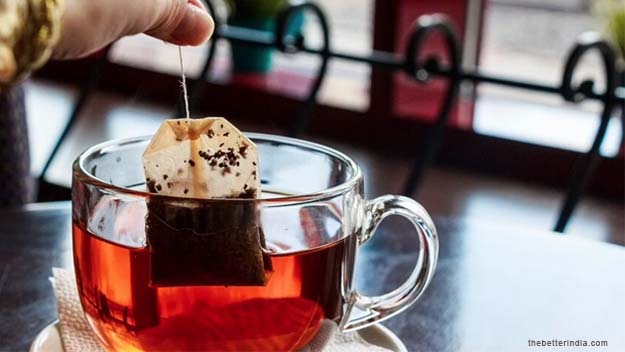
Australians generally love to drink a cup of tea. So much so that fifty percent of Australians drink at least one cup of tea every week with tea drinkers drinking 9.5 cups on average per week.
While we may be a nation of tea drinkers, we might not realise that we may also be ingesting billions of plastic particles with each cup of tea.
Recent research by McGill University in Canada has found that a single plastic tea bag can shed 11 billion microplastic and 3 billion nanoplastic particles into a single cup of tea. Professor of Chemical Engineering and Project Lead Nathalie Tufenkji noted that the amount of plastic released “is a lot when compared to other foods that contain microplastics”. Table salt for example contains 0.005 micrograms per gram of salt which is thousands of times lower than from a plastic tea bag. For those who use paper tea bags, this might not appear to be such a big concern. However, even then plastic glue made of polypropylene, also known as a bioplastic, is being used to seal paper tea bags so they don’t break in boiling hot water.
These two types of tea bags create health concerns for tea drinkers as well as environmental issues. In terms of health concerns, most plastics including polypropylene is known to negatively affect the endocrine system which controls your metabolism, heart rate and blood pressure and can lead to chronic health conditions. While the harm caused by plastics on the environment are well known, this also extends to bioplastics which are still a single use plastic and can only be composted in an industrial facility. Without the latter, bioplastics can be just as harmful as conventional oil plastics.
While we may opt for convenience over quality, this is one decision we should be making with the long term consequences in mind. If you want to make sure you’re choosing the healthy and environmental option, check information by your tea brand on the types of tea bags they sell for plastic use, any future development of biodegradable tea bags or start to use loose leaf tea which will likely give you fuller flavour as well as be better for the environment.
